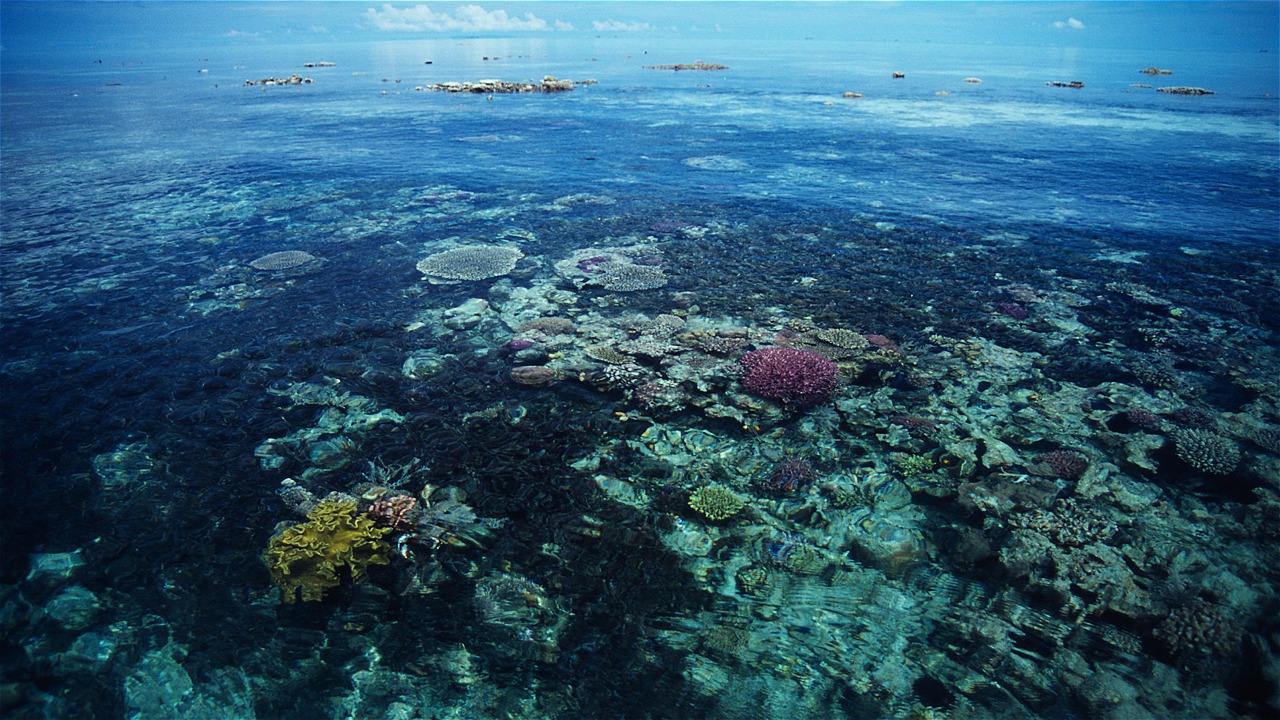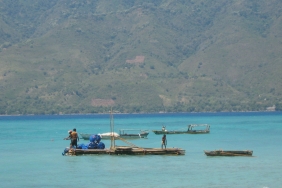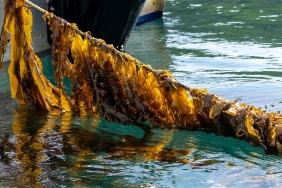INTERNATIONAL BUSINESSES RESPOND TO RISING STANDARDS FOR SUSTAINABLE MARINE TOURISM IN THE CORAL TRIANGLE REGION
Nusa Dua, Bali - Indonesia hosted the 4th Coral Triangle Initiative on Coral Reefs, Fisheries and Food Security (CTI-CFF) Regional Business Forum themed "The Coral Triangle Region as a World Marine Tourism Destination" held in Nusa Dua Bali, Indonesia on August 27-29, 2015.
"We are honored to host this initiative. The ocean, environment and tourism are intertwined and interconnected, and maintaining the health of our waters is our obligation. Every thought we apply, solution we present, and action we take will contribute greatly to long-term investment in future generations," said Secretary to the Coordinating Minister for Maritime Affairs and Resources Asep Djembar Muhammad, representing the Coordinating Minister for Maritime Affairs and Resources HE. Dr. Rizal Ramli at the opening remarks.
"As we know, marine tourism is currently one of the largest industries in the world and is becoming a very rapidly growing economic sector. We must strengthen partnerships to ensure the Coral Triangle region can become a model of sustainable ecosystem-based management," said Director General of Marine, Coastal and Small Islands (KP3K) of the Ministry of Maritime Affairs and Fisheries Dr. Sudirman Saad, M. Hum.
The three-day forum will encourage pioneers from businesses, government representatives and non-governmental organizations from 17 countries to discuss policies, strategies and innovative solutions in promoting sustainable marine tourism in the Coral Triangle region - the center of marine biodiversity in the world. In this forum there are three main events, namely (i) Sustainable Marine Tourism Conference, (ii) the Coral Triangle Marine Tourism Investment Forum and B2B Meetings, and (iii) the Coral Triangle Marine Tourism Expo.
"Last year, more than 1.1 billion foreign tourists traveled the world and by 2030 this will increase to 1.8 billion plus more than 5 billion domestic tourists. Tourism creates jobs and economic opportunities, but can also have negative environmental and social impacts if not managed properly. Therefore, sustainability must be embedded and mainstreamed in all forms of tourism," said Luigi Cabrini, Chairman of the Global Sustainable Tourism Council and Advisor to the UNWTO.
More than 85 percent of coral reefs in the Coral Triangle are directly threatened by human activities, a report has found. The report titled Reefs at Risk Revisited shows that the biggest threats to coral reefs in the Coral Triangle countries -Indonesia, Malaysia, Papua New Guinea, Philippines, Solomon Islands and Timor Leste- are overfishing, water pollution and coastal development.
Widi A. Pratikto Ph.D, Executive Director of the CTI-CFF Regional Secretariat said, "The Coral Triangle Initiative was formed by a regional community of six countries to work together through a tangible framework and provide a platform for action. The diverse backgrounds of its members reflect the strong desire of stakeholders to be involved in making meaningful contributions in a joint effort to achieve a better and more sustainable marine tourism management system in the Coral Triangle region."
Executive Director of the Coral Triangle Center, Rili Djohani, one of the organizers of the forum said, "Marine tourism in the Coral Triangle region has continued to increase in the last two years and will continue to grow along with the growth of the middle class market in Asia. We must ensure that marine tourism in the Coral Triangle remains sustainable and apply the best standards and practices in the tourism industry so that the ecosystems that are vulnerable to all these activities can be maintained into the future."
Since the formation of the CTI Regional Business Forum, the event has encouraged fishing companies, seafood vendors, financial institutions, and travel and tourism operators in the Coral Triangle region to publicly announce concrete steps to reduce impacts on the marine environment by implementing more responsible business practices. "The private sector, local government officials, women leaders and community leaders must work together to ensure sustainability is achieved," Widi added.
---- finished ----
Note to editors:
- The Coral Triangle region is the world's center of marine biodiversity. More than 2,000 species of reef fish and 600 species of coral live in the region. The Coral Triangle region includes Indonesia, Malaysia, Papua New Guinea, the Philippines, Solomon Islands and Timor Leste. The Coral Triangle Region Regional Business Forum is organized by the Coral Triangle Initiative on Coral Reefs, Fisheries and Food Security (CTI-CFF) and government partners to partner with the private sector to create innovative business solutions to sustain economically beneficial marine resources.
- Data from the World Travel and Tourism Council shows that the travel and tourism industry in the six countries of the Coral Triangle region has made a significant economic impact. In 2014, the industry contributed USD 58 billion to the GDP of the six countries and provided employment to more than 5 million people. It is estimated that around USD 3 billion of marine tourism revenue in the Coral Triangle is derived from currency exchange in the area.
For more information, please contact:
Hery Daulay: hery_gdly@yahoo.com
Dwi Aryo Tjiptohandono: daryo@wwf.or.id
Edwin Bimo: lgallardo@coraltrianglecenter.org
Leilani Gallardo: lgallardo@coraltrianglecenter.org
R. Jaka Setia: jsetia@tnc.org





